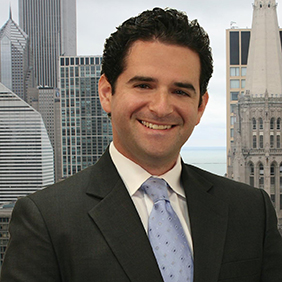- Home »
- Business Bankruptcy »
- Ponzi Scheme Lender May Be Off The Hook, After All: A Case Study

Ponzi Scheme Lender May Be Off The Hook, After All: A Case Study
Fair Finance Company v. Textron Financial Corporation: The Rundown
In 2016, the U.S. Court of Appeals for the Sixth Circuit revived a trustee’s $17.5 million avoidance and claw-back suit against a lender, finding that Textron’s security interests in Fair Finance could have been extinguished via novation. The impact is that secured lenders entering into amended and restated loan documents should adopt definitive and irrefutable language demonstrating that the parties did not intend for the new agreement to novate the original agreement.
On August 23, 2016, the Sixth Circuit in the In re Fair Finance Company v. Textron Financial Corporation case held that an amended and restated loan and security agreement may constitute a complete novation of the original agreement, thereby extinguishing the lender’s security interest established under the original agreement and substantiating fraudulent transfer liability.1
A House of Cards
In 2002, Tim Durham and James Cochran purchased Fair Finance Company in a leveraged purchase. The transaction was made possible by a $22 million revolving credit facility (the “2002 LSA“) from Textron Financial (“Textron”) and United Bank (“United”) secured by substantially all of Fair Finance’s business assets. The lenders filed a UCC Financing Statement with the Ohio Secretary of State. Following the settlement of the leveraged buyout, Durham and Cochran began selling additional notes and directing the proceeds to insider entities for their personal benefit as part of what was later determined to be a Ponzi scheme.
Fair Finance’s insider loans grew exponentially. Following an audit, United urged Textron to buyout United’s interest under the 2002 LSA. After receiving various assurances from Fair Finance, Textron decided to maintain its relationship with the troubled company and agreed to buy out United’s position. The parties amended and restated the 2002 LSA in 2004 (the “Amended 2004 LSA”). The Amended 2004 LSA re-granted a security interest in the business assets of Fair Finance. Textron did not file a new UCC financing statement in connection with the Amended 2004 LSA. Instead, Textron extended its previous UCC filing under the original LSA on July 31, 2006, two years after executing the Amended 2004 LSA.
Involuntary Chapter 7 Bankruptcy – The Cards Come Crashing Down
The scheme collapsed in 2009. Durham, Cochran, and CFO Rick Snow were indicted on numerous fraud counts following an FBI raid. Certain creditors commenced an involuntary chapter 7 bankruptcy case against Fair Finance, in which more than $208 million in claims were filed on behalf of innocent noteholders.
The chapter 7 trustee sued Textron to avoid and recover $316 million paid to Textron in connection with the Amended 2004 LSA. The trustee alleged that the payments constituted actual fraudulent transfers under Ohio law, as applied via the strong arm provision of the Bankruptcy Code. Key to the trustee’s allegation was his argument that the Amended 2004 LSA novated the 2002 LSA, thereby abrogating the original security interest. It would follow that because the payments made to Textron were not encumbered, they could qualify as “transfers” under the Ohio fraudulent transfer statute that can be avoided and recovered.
What is a Novation? What Does a Novation Do to the Prior Agreement?
Later, the Sixth Circuit would quote Ohio case law to explain that:
“[a] contract of novation is created where a previous valid obligation is extinguished by a new valid contract, accomplished by substitution of parties or the undertaking, with the consent of all the parties, and based on valid consideration.”
In a sense, a novation establishes that the novated contract fully performs the prior contract. A novated LSA would create a new security interest (if it contained a valid security agreement signed by both parties). For that security interest to be enforceable against third parties, it would have to be perfected, including, with respect to most non-real property collateral, by filing a financing statement per the requirements of the Uniform Commercial Code. The financing statement filed with respect to the prior LSA would no longer be effective. No such new filing took place in this case.
The District Court Dismissed the Trustee’s Complaint Because There Could be No Novation Under the Facts Pleaded by Trustee
On April 20, 2012, Textron moved to dismiss the trustee’s claims. The district court rejected the bankruptcy court’s recommendation to deny the motion and granted Textron’s motion. The court concluded that the Amended 2004 LSA was not a novation of the 2002 LSA but merely a refinancing. Therefore, according to the court, the original security interest remained in effect, and Textron retained a valid security interest in the debtor’s assets. Thus, the challenged payments were not avoidable as fraudulent transfers under Ohio law.
It seems Textron will be off the hook as the U.S Court of Appeals for the Sixth Circuit in Cincinnati on September 10, 2021 decided in favor of Textron and upheld the Northern District of Ohio Court’s decision. Investors will not recoup their losses despite the trustee’s multiple attempts.2
Finding Ambiguity, the Sixth Circuit Reversed the District Court
In reversing the district court’s ruling, the Sixth Circuit explained the error in the district court’s finding that the 2004 LSA cannot have been a novation. The Sixth Circuit held that certain provisions of the Amended 2004 LSA created a question of fact as to whether the parties intended to completely extinguish the 2002 LSA and the original security interest it granted. For instance, the Amended 2004 LSA states that it “constitutes the entire agreement of Borrowers and Lender relative to the subject matter” thereof and would “supersede any and all prior oral or written agreements relating to the subject matter,” and further re-granted a security interest. The provisions the court looked to in finding a novation are regularly drafted into amended and restated loan documents throughout the loan market.
Take-Away for Secured Lender (and Something for Borrowers and Trustees to Look For)
A secured lender entering into amended and restated loan documents can lower the risk of litigation over its secured position – including litigation seeking to claw-back payments it receives as alleged fraudulent transfers – by adopting definite and irrefutable language demonstrating that the parties do not intend for the new agreement to novate the original agreement.
[Editors’ Note: To learn more about this and related topics, you may want to attend the following on-demand webinars (which you can listen to at your leisure and each include a comprehensive customer PowerPoint about the topic):
This is an updated version of an article originally published on January 14, 2016]
©2022. DailyDACTM, LLC d/b/a/ Financial PoiseTM. This article is subject to the disclaimers found here.
About Tricia Schwallier
Tricia Schwallier is a restructuring associate in the Chicago office of Kirkland & Ellis LLP. Tricia’s practice focuses on all aspects of corporate restructuring, bankruptcy and insolvency.

About Michael A. Brandess
Michael A. Brandess, a partner at Husch Blackwell and part of the Bankruptcy, Reorganization and Creditors’ Rights practice group, is consistently recognized for his dedicated and zealous representation of his clients, finding the most efficient and creative solutions, securing his clientele the most value for their claims. Michael’s practice focuses on the representation of asset…

Related Articles
The Fisker Case: My Credit Bid Capped at the Amount I Paid for the Debt?
PUBLIC NOTICE OF UCC ARTICLE 9 SALE: Ribon Therapeutics, INC.
The Commercial Receivers Association Prepares to Celebrate its Second Annual Conference in Palm Beach, FL August 18-21, 2024
90 Second Lesson: Are Secured Creditors Better Off With a Federal Court Receivership or Bankruptcy?
How Far Can the Trustee Reach?
90-Second Lesson: You Default on a Commercial Loan, What Happens Next?
Session expired
Please log in again. The login page will open in a new tab. After logging in you can close it and return to this page.
